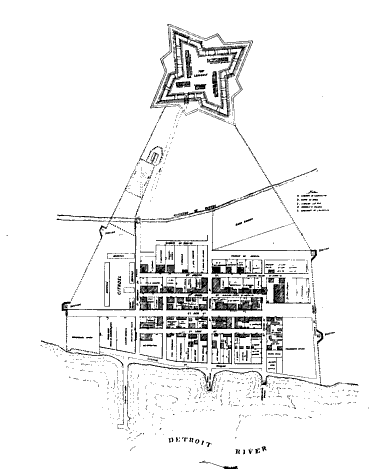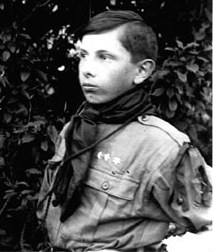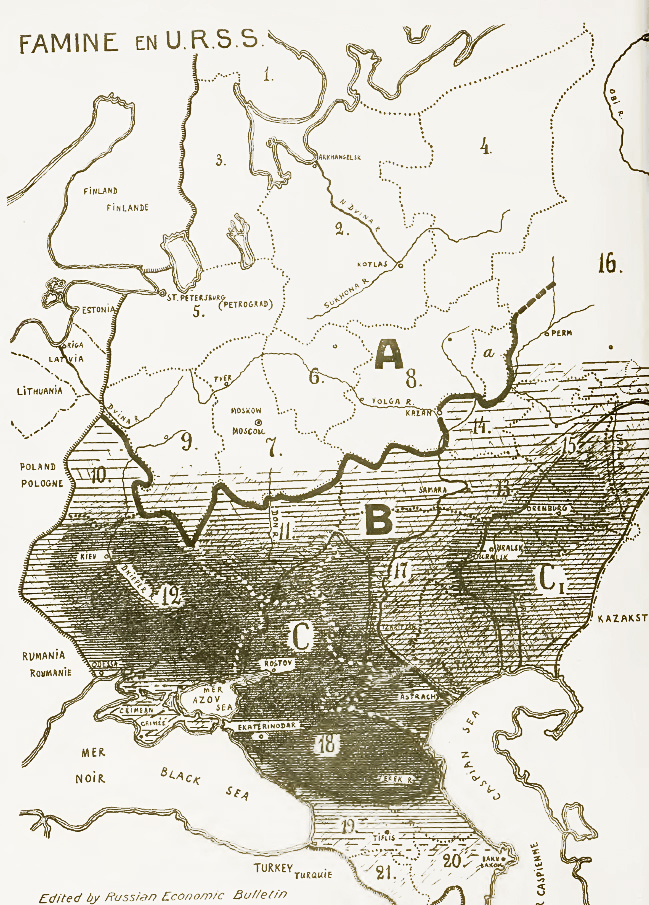|
John Paul Himka
John-Paul Himka ( ua, Іван-Павло Химка; born May 18, 1949, in Detroit, Michigan) is an American-Canadian historian and retired professor of history of the University of Alberta in Edmonton. Himka received his BA in Byzantine-Slavonic Studies and Ph.D. in History from the University of Michigan in 1971 and 1977 respectively. The title of his Ph.D. dissertation was ''Polish and Ukrainian Socialism: Austria, 1867–1890''. As a historian Himka was a Marxist in the 1970s–80s, but became influenced by postmodernism in the 1990s. In 2012 he defined his methodology in history as "eclectic". Life Himka is of mixed ethnic background, Ukrainian (on father's side) and Italian (on mother's). Initially he wanted to become a Greek Catholic priest and studied at St. Basil Seminary in Stamford, Connecticut. However, due to the radicalization of his political views to the left by the end of the 1960s he did not pursue that vocation. Career Since 1977, he taught at University ... [...More Info...] [...Related Items...] OR: [Wikipedia] [Google] [Baidu] |
Detroit
Detroit ( , ; , ) is the largest city in the U.S. state of Michigan. It is also the largest U.S. city on the United States–Canada border, and the seat of government of Wayne County. The City of Detroit had a population of 639,111 at the 2020 census, making it the 27th-most populous city in the United States. The metropolitan area, known as Metro Detroit, is home to 4.3 million people, making it the second-largest in the Midwest after the Chicago metropolitan area, and the 14th-largest in the United States. Regarded as a major cultural center, Detroit is known for its contributions to music, art, architecture and design, in addition to its historical automotive background. ''Time'' named Detroit as one of the fifty World's Greatest Places of 2022 to explore. Detroit is a major port on the Detroit River, one of the four major straits that connect the Great Lakes system to the Saint Lawrence Seaway. The City of Detroit anchors the second-largest regional economy in t ... [...More Info...] [...Related Items...] OR: [Wikipedia] [Google] [Baidu] |
Socialism
Socialism is a left-wing economic philosophy and movement encompassing a range of economic systems characterized by the dominance of social ownership of the means of production as opposed to private ownership. As a term, it describes the economic, political and social theories and movements associated with the implementation of such systems. Social ownership can be state/public, community, collective, cooperative, or employee. While no single definition encapsulates the many types of socialism, social ownership is the one common element. Different types of socialism vary based on the role of markets and planning in resource allocation, on the structure of management in organizations, and from below or from above approaches, with some socialists favouring a party, state, or technocratic-driven approach. Socialists disagree on whether government, particularly existing government, is the correct vehicle for change. Socialist systems are divided into non-market and market f ... [...More Info...] [...Related Items...] OR: [Wikipedia] [Google] [Baidu] |
Organization Of Ukrainian Nationalists
The Organization of Ukrainian Nationalists ( uk, Організація українських націоналістів, Orhanizatsiya ukrayins'kykh natsionalistiv, abbreviated OUN) was a Ukrainian ultranationalist political organization established in 1929 in Vienna. The OUN was the largest and one of the most important far-right Ukrainian organizations operating in the Kresy region (Eastern Galicia) of the Second Polish Republic. OUN emerged as a union between the Ukrainian Military Organization, smaller radical right-wing groups, and right-wing Ukrainian nationalists and intellectuals represented by Dmytro Dontsov, Yevhen Konovalets, Mykola Stsiborskyi, and other figures. The ideology of the OUN has been described as similar to Italian Fascism. The OUN sought to infiltrate legal political parties, universities and other political structures and institutions. The OUN's strategies to achieve Ukrainian independence included violence and terrorism against perceived foreign a ... [...More Info...] [...Related Items...] OR: [Wikipedia] [Google] [Baidu] |
Viktor Yushchenko
Viktor Andriyovych Yushchenko ( uk, Віктор Андрійович Ющенко, ; born 23 February 1954) is a Ukrainian politician who was the third president of Ukraine from 23 January 2005 to 25 February 2010. As an informal leader of the Ukrainian opposition coalition, he was one of the two main candidates in the 2004 Ukrainian presidential election. Yushchenko won the presidency through a repeat runoff election between him and Prime Minister Viktor Yanukovych. The Ukrainian Supreme Court called for the runoff election to be repeated because of widespread electoral fraud in favor of Yanukovych in the original vote. Yushchenko won in the revote (52% to 44%). Public protests prompted by the electoral fraud played a major role in that presidential election and led to Ukraine's Orange Revolution. Following an assassination attempt in late 2004 during his election campaign, Yushchenko was confirmed to have ingested hazardous amounts of 2,3,7,8-tetrachlorodibenzodioxin (TCD ... [...More Info...] [...Related Items...] OR: [Wikipedia] [Google] [Baidu] |
Stepan Bandera
Stepan Andriyovych Bandera ( uk, Степа́н Андрі́йович Банде́ра, Stepán Andríyovych Bandéra, ; pl, Stepan Andrijowycz Bandera; 1 January 1909 – 15 October 1959) was a Ukrainian far-right leader of the radical, terrorist wing of the Organization of Ukrainian Nationalists named OUN-B. Bandera was born in the Austro-Hungarian Empire, in Galicia, into the family of a priest of the Ukrainian Greek Catholic Church. Involved in nationalist organizations from a young age, Bandera was sentenced to death for his involvement in the 1934 assassination of Poland's Minister of the Interior Bronisław Pieracki, commuted to life imprisonment. Freed from prison in 1939 following the invasion of Poland, Bandera prepared the 30 June 1941 Proclamation of Ukrainian statehood in Lviv, pledging to work with Germany after Germany invaded the Soviet Union on 22 June 1941. The Germans disapproved the proclamation and for his refusal to rescind the decree, Bandera was a ... [...More Info...] [...Related Items...] OR: [Wikipedia] [Google] [Baidu] |
Roman Shukhevych
Roman-Taras Yosypovych Shukhevych ( uk, Рома́н-Тарас Йо́сипович Шухе́вич, also known by his pseudonym, Tur and Taras Chuprynka; 30 June 1907 – 5 March 1950), was a Ukrainian nationalist, one of the commanders of Nachtigall Battalion, a of the German Schutzmannschaft 201 auxiliary police battalion, a military leader of the Ukrainian Insurgent Army (UPA), and one of the perpetrators of the Galicia-Volhynia massacres of approximately 100,000 Poles. Life Shukhevych was born in the city of Lviv,Kentiy, A"Roman Shukhevych" ''Encyclopedia of History of Ukraine''. 2013 in the Kingdom of Galicia and Lodomeria (some sources claim his place of birth as Krakovets). Both Shukhevych's parents were involved with the Ukrainian national revival in the 19th century. The family lays claim to dozens of active community activists in politics, music, science, and art. Shukhevych received his early education outside of Lviv. He returned to Lviv to study at the Lviv Ac ... [...More Info...] [...Related Items...] OR: [Wikipedia] [Google] [Baidu] |
Holocaust
The Holocaust, also known as the Shoah, was the genocide of European Jews during World War II. Between 1941 and 1945, Nazi Germany and its collaborators systematically murdered some six million Jews across German-occupied Europe; around two-thirds of Europe's Jewish population. The murders were carried out in pogroms and mass shootings; by a policy of extermination through labor in concentration camps; and in gas chambers and gas vans in German extermination camps, chiefly Auschwitz-Birkenau, Bełżec, Chełmno, Majdanek, Sobibór, and Treblinka in occupied Poland. Germany implemented the persecution in stages. Following Adolf Hitler's appointment as chancellor on 30 January 1933, the regime built a network of concentration camps in Germany for political opponents and those deemed "undesirable", starting with Dachau on 22 March 1933. After the passing of the Enabling Act on 24 March, which gave Hitler dictatorial plenary powers, the government began isolating Je ... [...More Info...] [...Related Items...] OR: [Wikipedia] [Google] [Baidu] |
Ukrainian Nationalism
Ukrainian nationalism refers to the promotion of the unity of Ukrainians as a people and it also refers to the promotion of the identity of Ukraine as a nation state. The nation building that arose as nationalism grew following the French Revolution and it was inspired by the ideals of people ruling themselves. Ukrainian Nationalism, while emerging in the 18th century, draws upon a single national identity of culture, ethnicity, geographic location, language, politics (or the government), religion, traditions and belief in a shared singular history, that dates back to the 9th century. The origins of modern Ukrainian nationalism emerge during the 17th-century Cossack uprising against the Polish–Lithuanian Commonwealth led by Bohdan Khmelnytsky. History Nationalism emerged after the French Revolution while modern day Ukraine faced external pressure from the suzerainty of the Polish–Lithuanian Commonwealth, the Tsardom of Russia and the Ottoman Empire but the National Identit ... [...More Info...] [...Related Items...] OR: [Wikipedia] [Google] [Baidu] |
Genocide
Genocide is the intentional destruction of a people—usually defined as an ethnic, national, racial, or religious group—in whole or in part. Raphael Lemkin coined the term in 1944, combining the Greek word (, "race, people") with the Latin suffix ("act of killing").. In 1948, the United Nations Genocide Convention defined genocide as any of five "acts committed with intent to destroy, in whole or in part, a national, ethnical, racial or religious group." These five acts were: killing members of the group, causing them serious bodily or mental harm, imposing living conditions intended to destroy the group, preventing births, and forcibly transferring children out of the group. Victims are targeted because of their real or perceived membership of a group, not randomly. The Political Instability Task Force estimated that 43 genocides occurred between 1956 and 2016, resulting in about 50 million deaths. The UNHCR estimated that a further 50 million had been displac ... [...More Info...] [...Related Items...] OR: [Wikipedia] [Google] [Baidu] |
Holodomor
The Holodomor ( uk, Голодомо́р, Holodomor, ; derived from uk, морити голодом, lit=to kill by starvation, translit=moryty holodom, label=none), also known as the Terror-Famine or the Great Famine, was a man-made famine in Soviet Ukraine from 1932 to 1933 that killed millions of Ukrainians. The Holodomor was part of the wider Soviet famine of 1932–1933 which affected the major grain-producing areas of the Soviet Union. While scholars universally agree that the cause of the famine was man-made, whether the Holodomor constitutes a genocide remains in dispute. Some historians conclude that the famine was planned and exacerbated by Joseph Stalin in order to eliminate a Ukrainian independence movement. This conclusion is supported by Raphael Lemkin. Others suggest that the famine arose because of rapid Soviet industrialisation and collectivization of agriculture. Ukraine was one of the largest grain-producing states in the USSR and was subject to unre ... [...More Info...] [...Related Items...] OR: [Wikipedia] [Google] [Baidu] |
Ukrainian Diaspora
The Ukrainian diaspora comprises Ukrainians and their descendants who live outside Ukraine around the world, especially those who maintain some kind of connection, even if ephemeral, to the land of their ancestors and maintain their feeling of Ukrainian national identity within their own local community. The Ukrainian diaspora is found throughout numerous regions worldwide including other post-Soviet states as well as in other countries such as Poland, the United States, Canada, the UK and Brazil. Distribution The Ukrainian diaspora is found throughout numerous countries worldwide. It is particularly concentrated in other post-Soviet states (Belarus, Kazakhstan, Moldova, and Russia), Central Europe (the Czech Republic, Germany, and Poland), North America (Canada and the United States), and South America (Argentina and Brazil). History 1608 to 1880 After the loss suffered by the Ukrainian-Swedish Alliance under Ivan Mazepa in the Battle of Poltava in 1709, some political e ... [...More Info...] [...Related Items...] OR: [Wikipedia] [Google] [Baidu] |
The Holocaust In Ukraine
The Holocaust in Ukraine took place in the ''Reichskommissariat Ukraine'', the ''General Government'', the ''Crimean General Government'' and some areas which were located to the East of Reichskommissariat Ukraine (all of those areas were under the military control of Nazi Germany), in the ''Transnistria Governorate'' and Northern Bukovina (both areas under the control of Romania, with the latter being re-annexed) and Carpathian Ruthenia (then part of Hungary) during World War II. The listed areas are currently parts of Ukraine. Between 1941 and 1944, more than a million Jews living in the Soviet Union, almost all from Ukraine and Belarus, were murdered by Nazi Germany's "Final Solution" extermination policies and with the help of local Ukrainian collaborators. Slavica Publishers. Most of them were killed in Ukraine because most pre-WWII Soviet Jews lived in the Pale of Settlement, of which Ukraine was the largest part. The major massacres against Jews mainly occurred during the ... [...More Info...] [...Related Items...] OR: [Wikipedia] [Google] [Baidu] |

.jpg)






.jpg)